Is all fair in love and war?
Royal Romance is set to be sold at auction, but do similar instances allude to problems on the horizon or will Ukraine collect a king’s ransom?
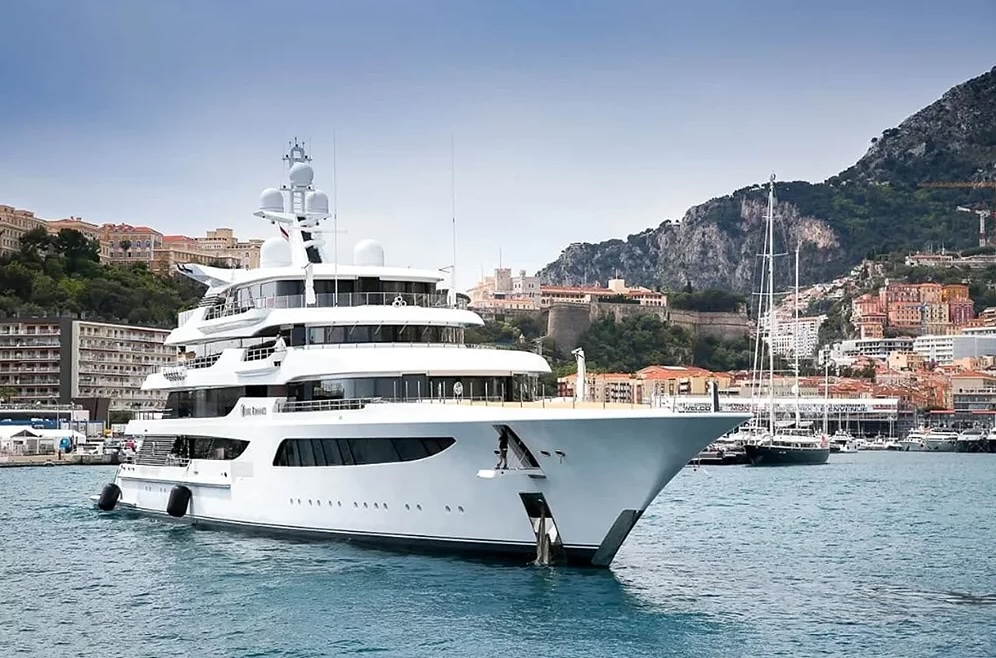
I’ve thankfully been sheltered from having to write about Harry and Megan as a superyacht industry journalist, yet I’ve been writing about royal romance quite a bit recently. This has been spurred by the news that Troostwijk Auctions has recently been named as the body to oversee the sale of sanctioned Ukrainian Viktor Medvedchuk’s Royal Romance.
The wealthy businessman leads the pro-Russian For Life party in Ukraine, his daughter has President Putin as a godfather and has consistently been labelled a traitor by Ukrainian authorities and the press. The now infamous yacht is set to be sold at auction having been seized in Croatia and its title transferred to the Ukrainian government, with the proceeds to be used to purchase defence bonds and aid the war effort against its invader.
Looking through a pro-Ukrainian lens, there could be something quite romantic about this proposition – the property of ‘a traitor’ being captured and metaphorically melted down to be used against the very people it was built to serve. There is an air of poetic justice about it. But just as with our interpretations of good and evil, it isn’t necessarily that black and white.
Individuals who are under sanctions aren’t technically ‘criminals’ either after receiving a designation; they are simply deemed to be part of a regime that is on a business blacklist in a bid to end (in this case) the war in Ukraine. While many of us might stand in solidarity with a people battling against a colonial war machine, the case of Royal Romance could potentially be a watershed moment for the industry, changing the litigious landscape.
Speaking with SuperyachtNews, industry law experts Rachel Cropper-Mawer, partner at Clyde & Co., and Daniel Martin, partner at HFW, dissect the situation. We discuss the echoes of other sanctioned vessels, the likelihood of the plan coming to fruition and the litigious fallout that can be expected in the coming years.
“The fact that the ownership has been transferred to the Ukrainian government certainly makes a difference in terms of perceptions, with a sense of justice being attributed to the auction,” says Cropper-Mawer. “But the biggest difference between this and the likes of other situations, like Alfa Nero, is that the ownership status isn’t being challenged, and that is significant. It’s possible that the validity of this transfer to the Ukrainian government could face challenges in the future, particularly once the war has concluded.
“There’s a difference between seizing or freezing an asset and then actually selling the yacht for your own benefit. That’s a significant distinction,” she adds. “This is essentially about war reparations – justice in the opinion of the Ukrainian government, rather than a more typical situation like enforcing a guarantee or court order.”
Despite the lack of legal challenge the seizure has faced from Medvedchuk, there are echoes of the Alfa Nero situation in Antigua, where the government changed a law to claim the title of the sanctioned yacht, sell it and keep the proceeds. There have of course been complications to the sale, as after a bid was accepted for $64 million, the ultimate beneficial owner of the yacht launched a legal challenge against Antigua, questioning the constitutionality of the amended law and right to the sale. The bid was subsequently retracted, and the boat will remain in Antigua ahead of the trial in September this year.
An arguably more successful comparison could be Axioma, which was sold at auction last year after it was seized from its sanctioned owner. Due to the nature of the sanctions, the owner defaulted on the loan payments with its debtor, JP Morgan, which subsequently took ownership of the vessel and sold it with a clean title.
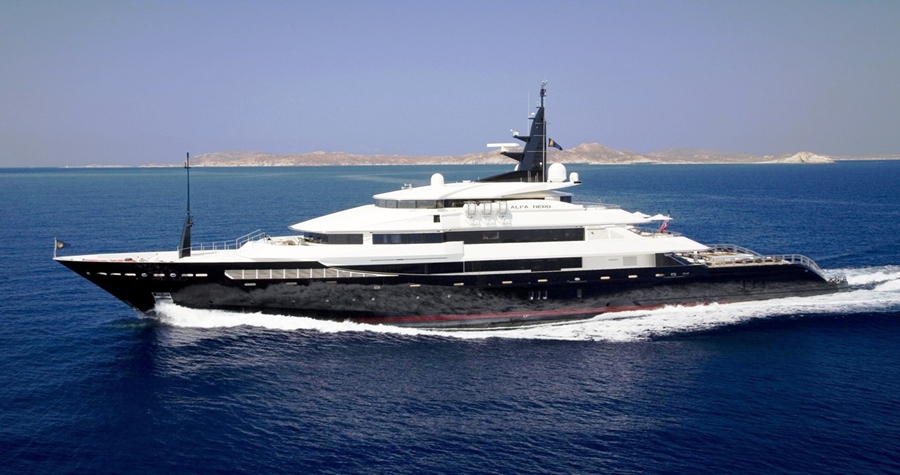 “The biggest difference between Royal Romance and the likes of other situations, like Alfa Nero, is that the ownership status isn’t being challenged, and that is significant.”
“The biggest difference between Royal Romance and the likes of other situations, like Alfa Nero, is that the ownership status isn’t being challenged, and that is significant.”
However, the context of this sale is inescapably different as the funds are to be appropriated by the Ukrainian government to purchase defence bonds. In 2023, Ukraine’s Asset Recovery and Management Agency (ARMA) held Defence Bonds with a total value of 3.701 billion Ukrainian Hryvnia (UAH) (€87 million), consisting of 3,602,934 individual units. The income generated from these bonds amounted to 195.86 million UAH (€4.6 million). Currently, after some bonds have been repaid, ARMA still holds 2,378,842 units of Defence Bonds, with a total value of 2.465 billion UAH (€58 million).
Despite some media outlets speculatively valuing Royal Romance at around €200 million, it is difficult to determine what the yacht will actually be sold for if the sale is to proceed. Considering Ukraine’s geopolitical situation, any proceeds to aid ARMA’s programme will provide a sizeable defence budget increase. But before Ukraine can realise any of those funds, it has to find a buyer and close the sale.
“It is straightforward enough to say we want to take and sell seized assets, but where things become more difficult is in finding a buyer willing to bear the risk. Understandably, Ukraine will want to realise as much income as they can from the sale of the asset, but I suspect they’ll be forced to sell at a bit of a discount due to the uncertainty and level of risk,” says Martin.
“This isn't necessarily specific to Royal Romance either. But here we're told that the title of the yacht has been transferred to Ukraine, and there may be questions about how effective that was as a matter of law. But if the transfer is legally effective and isn’t challenged prior to the sale, then there may be scope for a purchaser from the Ukrainian government to say we bought clean from them and that, if the original owner has an issue with the seizure by Ukraine and wants to challenge the transfer of ownership, that's between them and Ukraine.”
While that might be beneficial from a contractual perspective, the reality is that if there’s an issue, it would play out in a civil jurisdiction. The buyer might argue that Ukraine said, ‘This is now our yacht,’ and assert that the buyer is entitled not to look behind that. The key question which arises is where a challenge might take place. “It might well be that, in Ukraine, the legal framework for this transfer of ownership is clear and the Ukrainian court would uphold a court-approved transfer of ownership to Ukraine. That would be something for Ukrainian lawyers to consider. However, for movable assets like yachts, local laws may not suffice,” adds Martin.
This trans-jurisdictional nature of yacht ownership and the complexities that arise as a result will play a key factor in future operational processes and how the yacht will be used. In a scenario where land or another fixed asset in one country is seized and sold at a judicial auction, the buyer can probably (subject to any appeal) rely on the court process. That is because any challenge to the seizure will be determined by the same courts which approved it in the first place.
However, this situation differs with sanctioned yachts due to the nature of the asset being targeted. UK, EU and US sanctions may not be as rigorously enforced in certain jurisdictions like Turkey, Hong Kong, or Dubai. In such cases, ownership disputes could occur if the owner challenges the legality of the acquisition.
“This process is technically lawful because the Croatian and Ukrainian governments have said it is, but it’s very questionable and you would normally expect it to be challenged,” explains Cropper-Mawer. “Unless one can argue it has been seized on the basis that derives from the proceeds of crime or something like that, it wouldn’t be considered lawful in most jurisdictions to seize and sell property in this way. It’s a very technical argument as to why they’re doing it, and it’s not broadly applicable. And it appears obviously to be more political than anything.”
Aside from challenges in a legal context, the process could unfold in various ways, including forceful tactics. If the original owner wanted to reclaim the asset, that party can monitor where the yacht trades, see if there is an asset-friendly jurisdiction in which it operates that does not recognise the sanctions, and wait for the yacht’s arrival with local authorities – or worse. “These limitations and the history of the yacht could also play a factor if the new owner wanted to charter out the yacht,” adds Martin.
“Whilst it may not be problematic for a new owner who wants to use a yacht as their private vessel, and can accept limitations on the use the vessel, it might impact the marketability of a vessel which is going to be chartered out, because of the need to exclude jurisdictions where there might be a challenge to the legitimacy of the title transfer.”
The buyer might also have concerns about the condition of the yacht, considering it hasn’t been fully operational in over two years. It will of course have had essential maintenance, but it is unlikely to have been kept in optimum condition. To address any costs needed for refit or potential impediments to the owner’s enjoyment of the vessel due to its more limited viable operating destinations, Martin suggests that a deferred payment option could help mitigate any unforeseen issues during ownership. “If further refurbishment or maintenance is needed, it would be carried out in a secure drydock facility. Then the deferred payment arrangement should start when the refit begins, aligning with the buyer’s interests and perhaps giving them more peace of mind,” he adds.
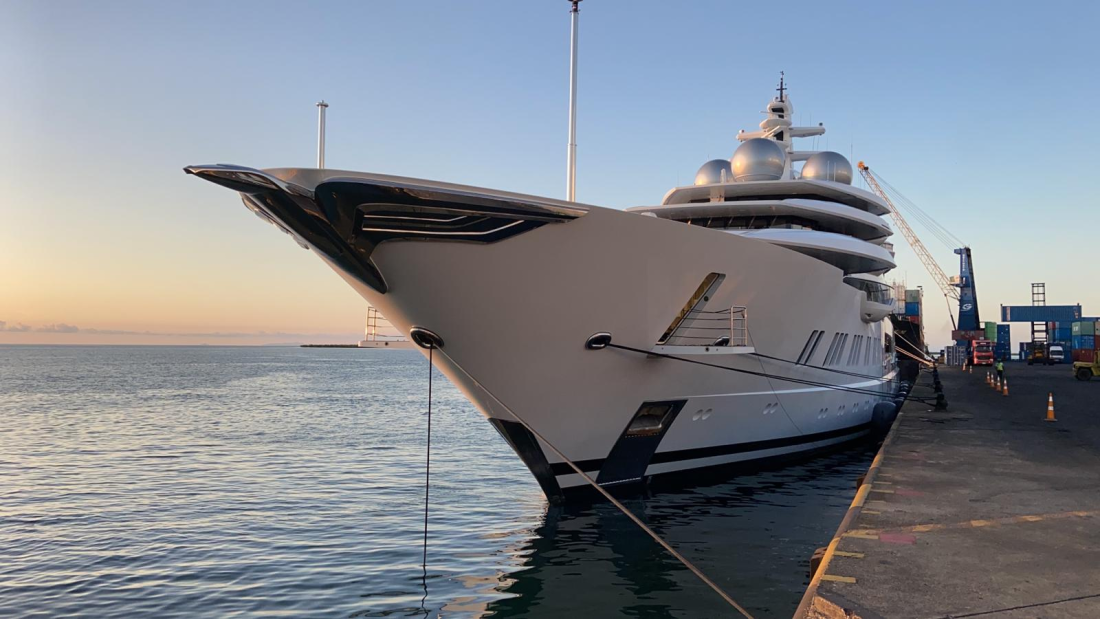 It would take a similar process to Royal Romance’s seizure and sale to occur, but it is likely the Ukrainian government is working quite hard to persuade the US to do the same with Amadea.
It would take a similar process to Royal Romance’s seizure and sale to occur, but it is likely the Ukrainian government is working quite hard to persuade the US to do the same with Amadea.
Considering these problems surrounding the yacht’s condition, the lawfulness of the sale, title transfer legitimacy and the history of the yacht’s previous owner, the overarching question is: who is actually going to buy the yacht?
There are some concerns surrounding the nature of yacht ownership, with some fears that Medvedchuk, or another owner in a similar position, could regain the title through a string of shell companies.
“For one, this is highly unlikely simply down to the qualifying terms that Ukraine has set out for prospective bidders. Prospective buyers will have to provide proof that they are not involved in the Russian Federation, Belarus, Medvedchuk or any persons associated with him. It is really no different to the KYC processes by which we all operate,” says Cropper-Mawer. “Plus, if they were to go down that route and try to buy it back, they would have to pay for it, which I really don’t think they’d want to do.”
There’s also going to be a lot of attention on this sale purely because Ukraine aims to realise as much from the sale as possible. However, this is essentially a distressed asset and the intended use of the funds is straightforward: they will be used to fund the war effort, which carries significant optics. This transaction, from a commercial standpoint, may seem routine in some aspects for the buyer. However, the focus will be on where the money will be directed. And while remedies like fund freezing may be acceptable for assets like bank accounts, tangible items such as yachts pose unique challenges. Buyers of sanctioned yachts may find themselves reconsidering their choices if they face uncertainties about where to sail or concerns about potential disruptions.
“So if you look at all of the challenges that arise with this sale, compared to a straightforward sale of a similar sized yacht, with the same pedigree and without a history, it becomes clear that only a particular type of buyer would be willing to take on such risks. There are those buyers who can afford to do so, perhaps to make a political statement,” says Martin. “For this kind of buyer, they could perhaps only wish to use this yacht in America or the Caribbean, so there is less of a worry about the jurisdictional challenges and ownership disputes. And it could be an opportunity for them to be seen as doing some good with their money, given the optics of the situation in trying to aid Ukraine.”
The prospect of the war ending is an attractive one, though it is becoming increasingly difficult to foresee a scenario in which Ukraine comes out on top, at the very least without losing some land to Russia. From a superyacht industry perspective, it does pose some questions as to how these sanctions will be handled once the dust settles, and if and how the sale of these assets will be repaid once the war ends.
“It’s a war of attrition and there are so many people involved. The cost is incredible, and it’s just really tragic. And as it continues, there will be implications for things like the other seized yachts around the world,” says Cropper-Mawer. “In the event of an agreement or a peace deal, there will definitely be a cost to pay for this sort of action we are seeing for Royal Romance. For instance, if Ukraine lost the war, then, of course, that money would presumably be awarded back to Medvedev.”
That being said, as it stands, the auction is set to proceed, and we could begin to see other countries harbouring sanctioned vessels start to follow suit as the war continues and Ukraine’s need for funds increases. It would take a similar process to Royal Romance’s seizure and sale to occur, but it is likely the Ukrainian government is working quite hard to persuade the US and other authorities to do the same.
“In a sense, this is a watershed moment,” adds Cropper-Mawer. “It’s so significant in that it’s an asset seized from someone sanctioned and being sold on that basis. It’s not pursuant to any court order or debt recovery – it’s actually in the name of the war. And if this sale is successful, we could see the dominos start to fall.”
Click here to become part of The Superyacht Group community, and join us in our mission to make this industry accessible to all, and prosperous for the long-term. We are offering access to the superyacht industry’s most comprehensive and longstanding archive of business-critical information, as well as a comprehensive, real-time superyacht fleet database, for just £10 per month, because we are One Industry with One Mission. Sign up here.
Related news
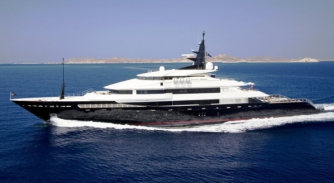
Alfa Nero to take centre court
The litigious tennis match the seized superyacht has found itself in is set to continue as the High Court Judge schedules hearing dates for later this year
Fleet
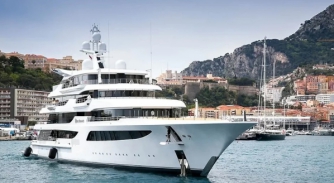
Royal Romance’s seller confirmed
Amidst the controversy, the Croatian government has revealed that Dutch auction house Troostwijk Auctions will oversee the sale of the seized yacht
Business
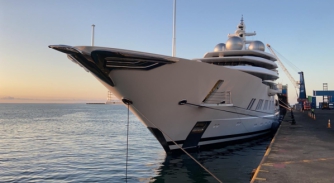
US aims to sell Amadea
Amadea could be sold by the US government as it looks to free itself from a seven-figure maintenance bill
Fleet
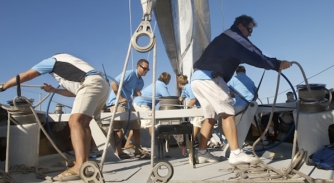
Millions marked for unpaid crew
Nautilus secured over a million euros in unpaid wages for crew in 2023, but this year could see the union gain millions more in a single settlement
Crew
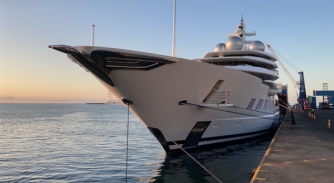
Political motives or legal grounds?
A former Rosneft CEO is contesting the legality of Amadea’s seizure in a New York Court, claiming that he is its true owner
Owner
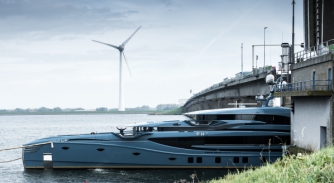
Anchored in dispute
Phi’s battle for freedom continues as its representatives launch an appeal against last year’s ruling to keep the boat detained in London
Business
Related news
Alfa Nero to take centre court
3 weeks ago
Royal Romance’s seller confirmed
3 weeks ago
US aims to sell Amadea
3 months ago
Millions marked for unpaid crew
3 months ago
Political motives or legal grounds?
4 months ago
Anchored in dispute
4 months ago
From Nero to Hero
4 months ago



